Abstract
The generalized effects of self-instructional training on the classroom performance of three "impulsive" preschool children were investigated using a multiple-baseline design across subjects. Measures of child and teacher behavior in the classroom were obtained through direct observations during a daily independent work period. Self-instructional training followed Meichenbaum and Goodman's (1971) approach, except that training materials consisted of naturalistic task worksheets rather than psychometric test items and training sessions were of shorter duration. For all three children, self-instructional training resulted in increased levels of accuracy on worksheets in the classroom that were similar to those used in training. Results related to several supplementary measures were less clear; however, they suggested that rates of on-task behavior may also have improved, and that a mild classroom intervention further strengthened on-task rates and effect consistent work completion for all three children. The findings suggested that generalized increases in accuracy on classroom worksheets were related to the naturalistic format of the self-instructional training sessions. The level of teacher attention was controlled to rule out its effect on changes in child behavior.
Full text
PDF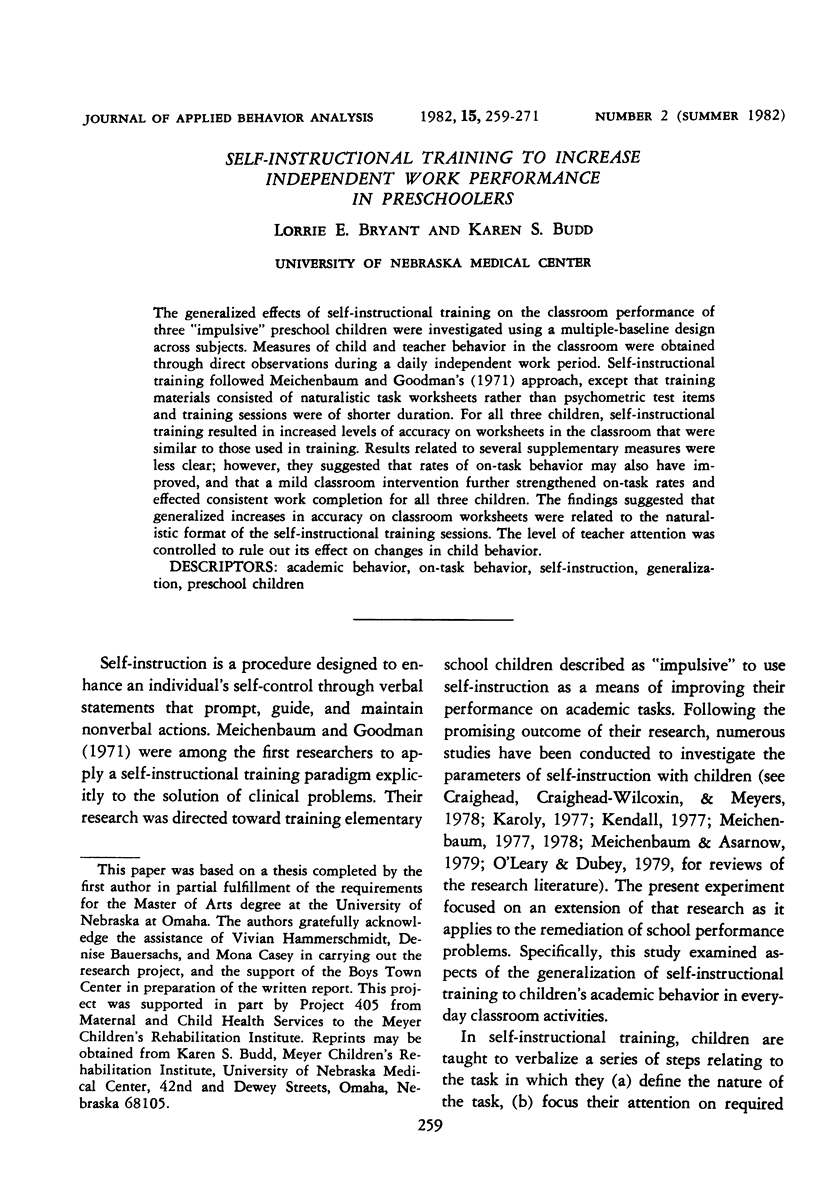
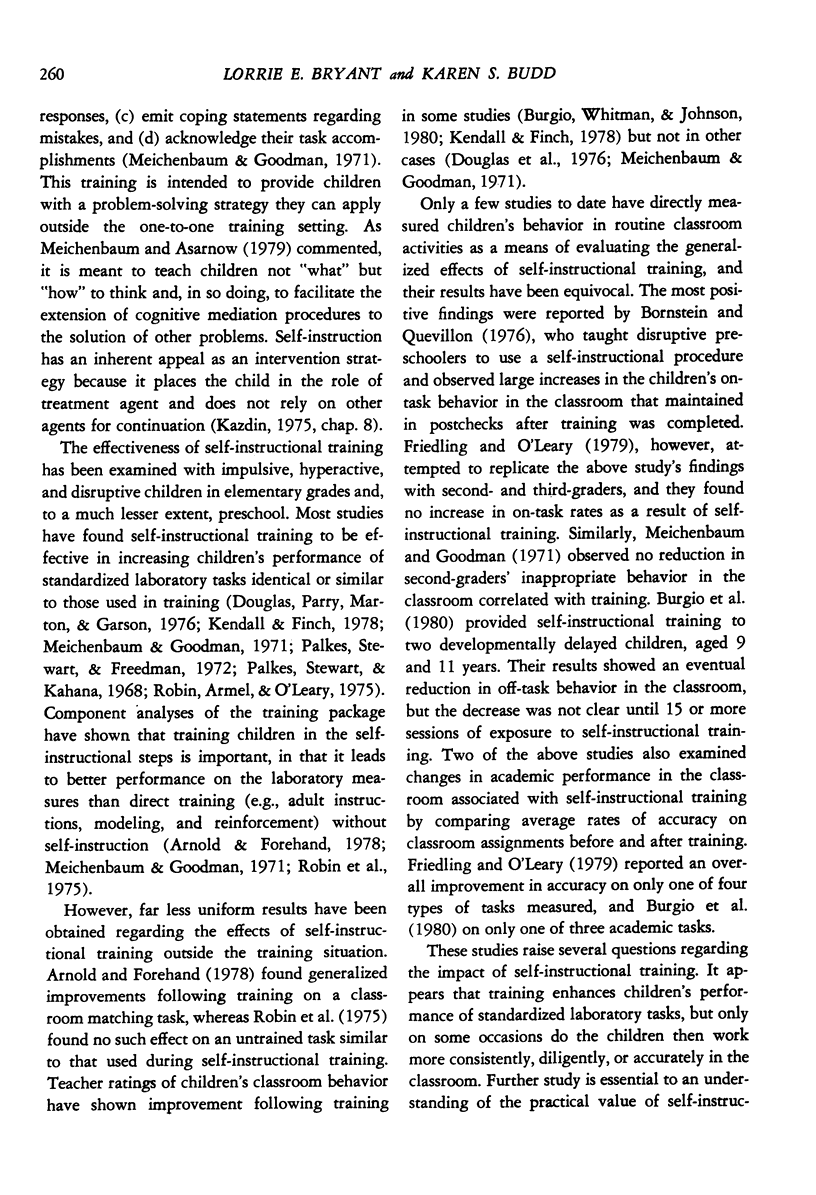
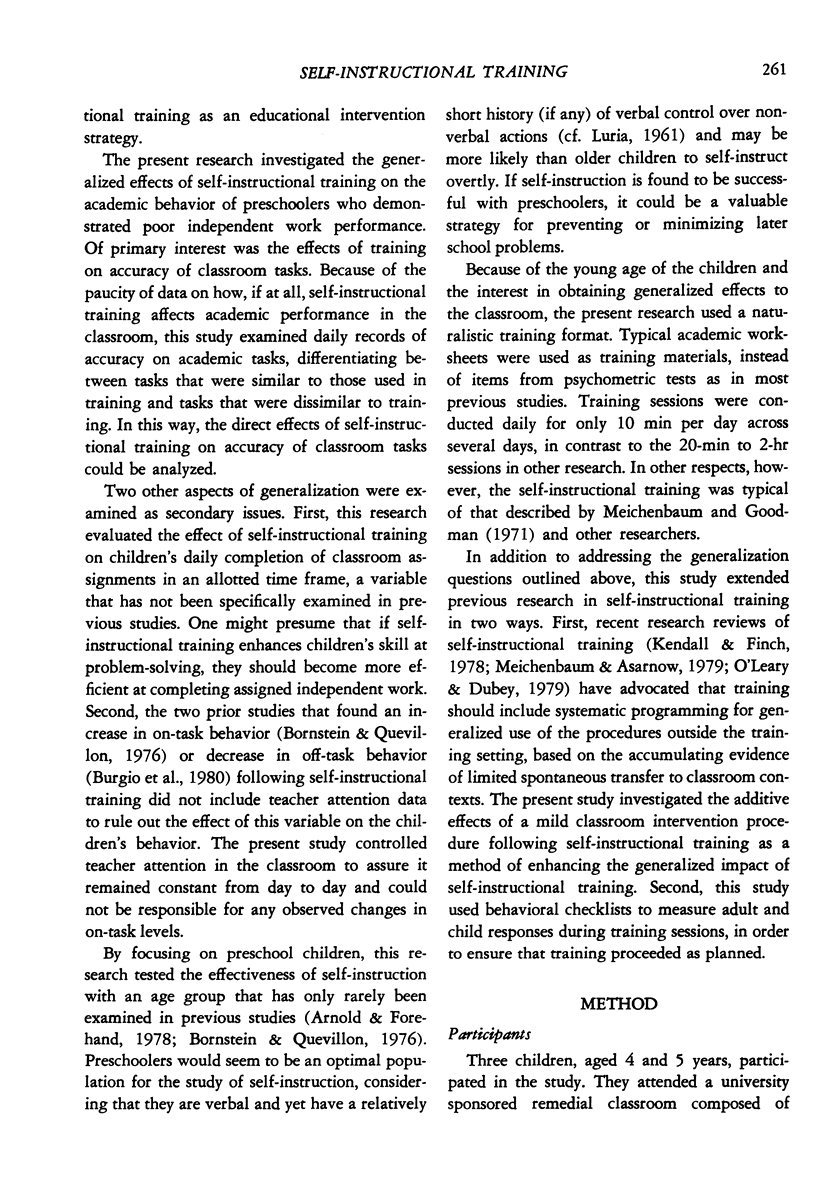
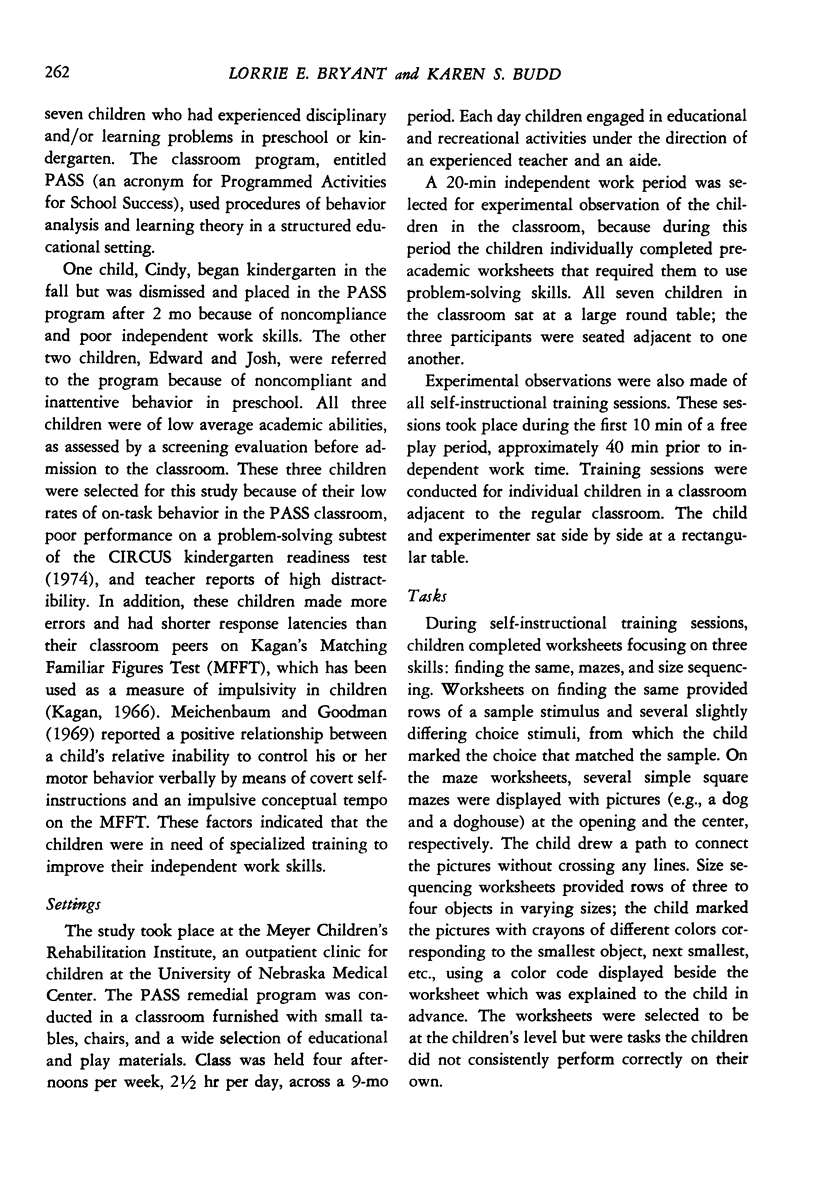
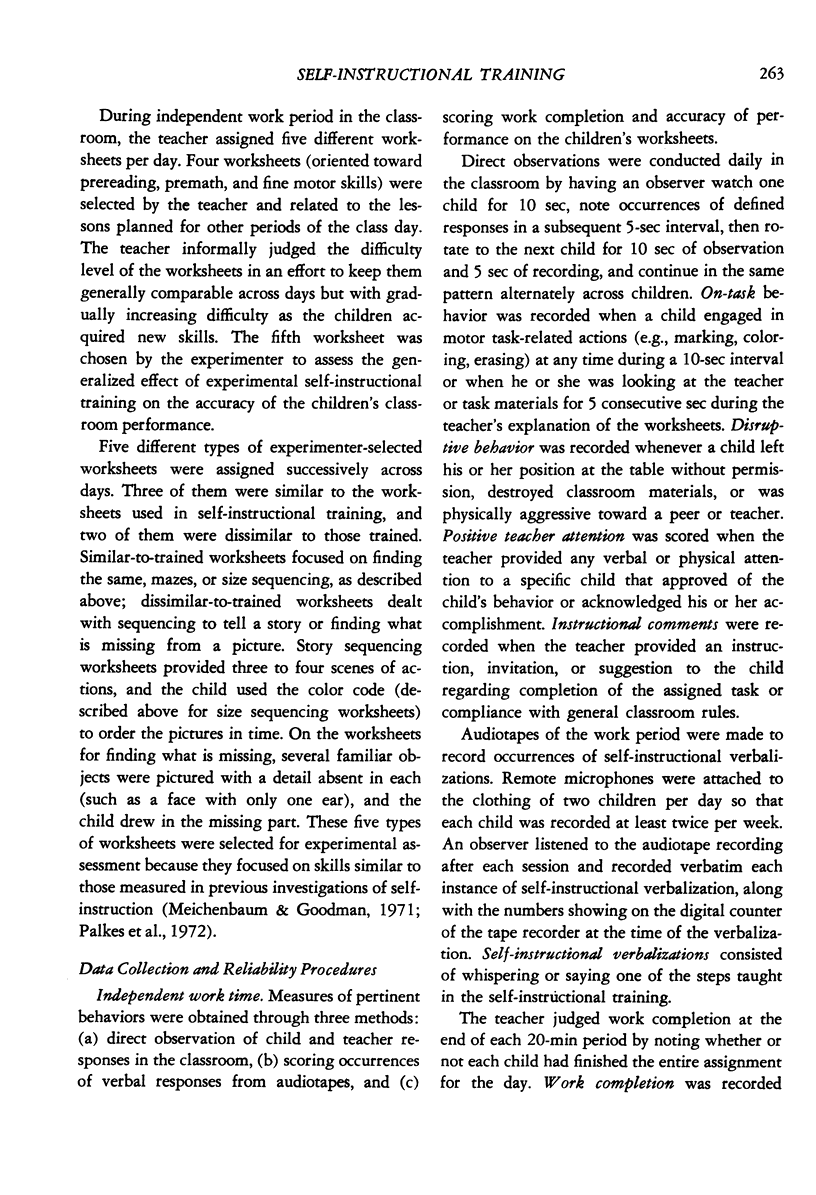
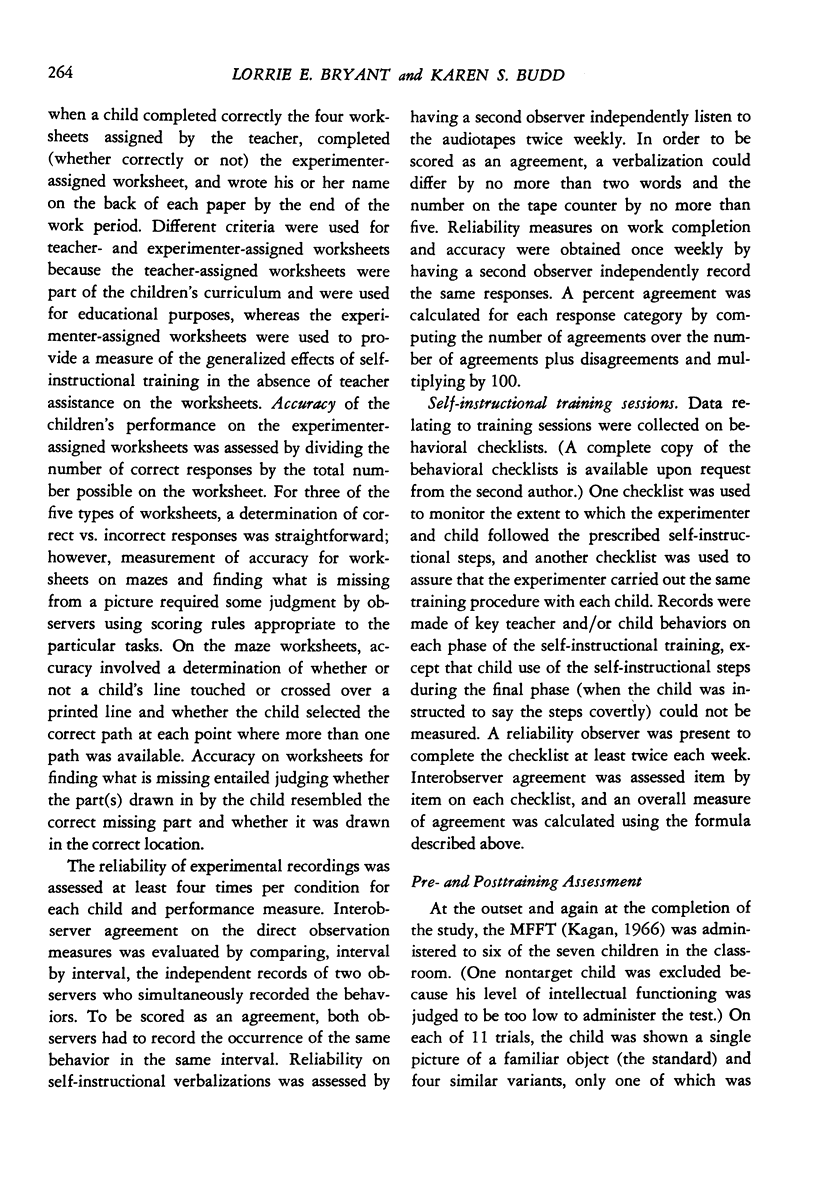
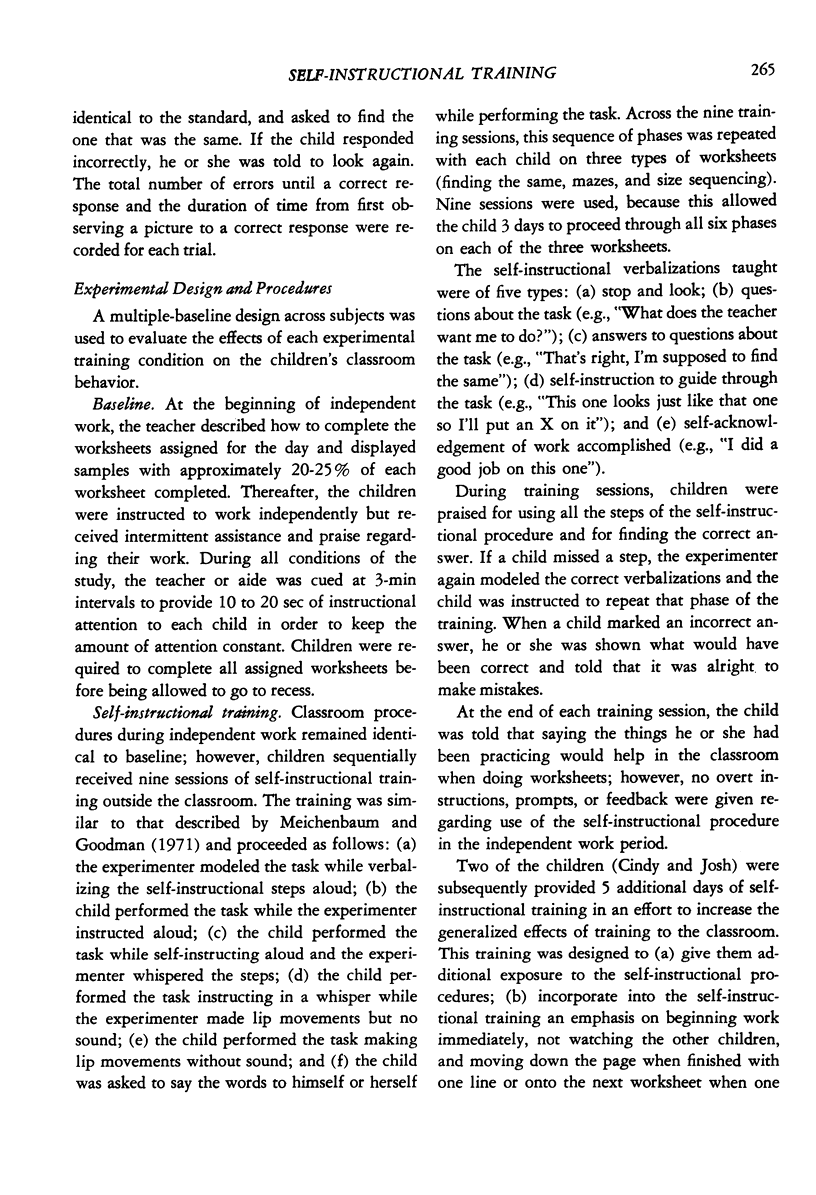
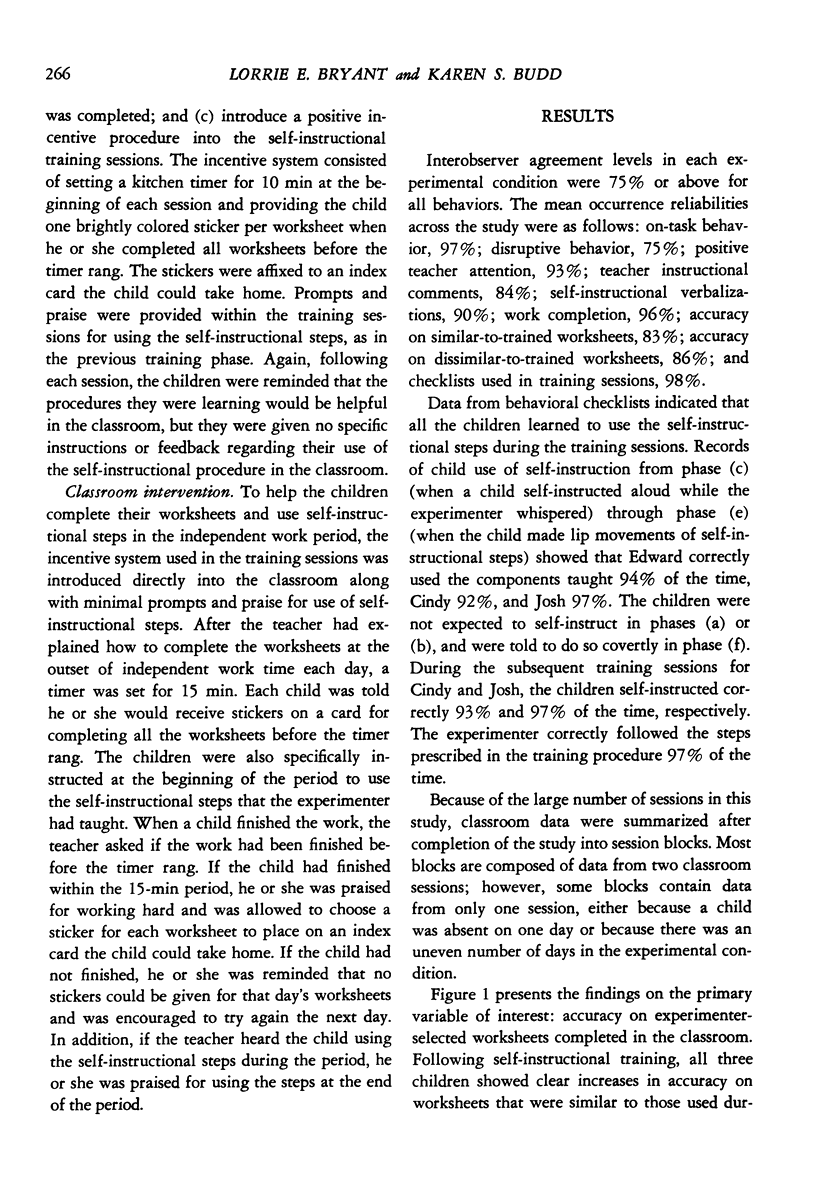
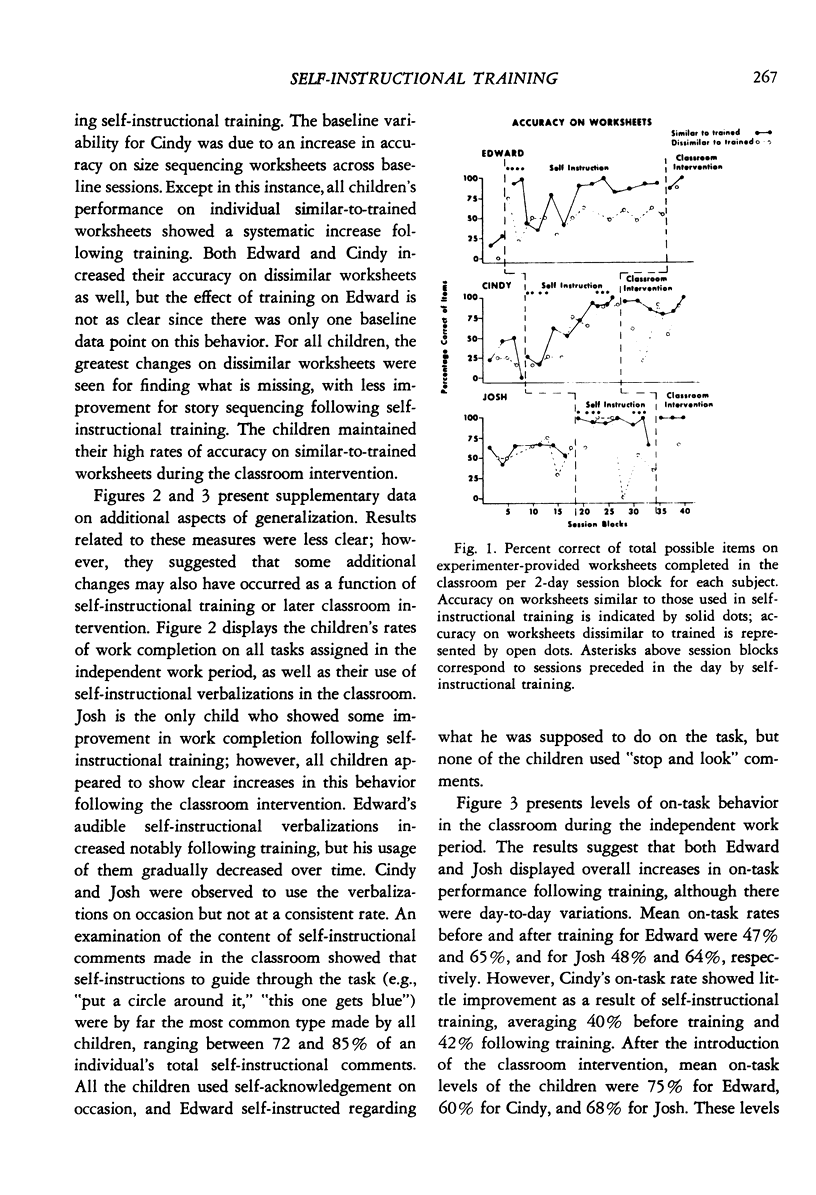
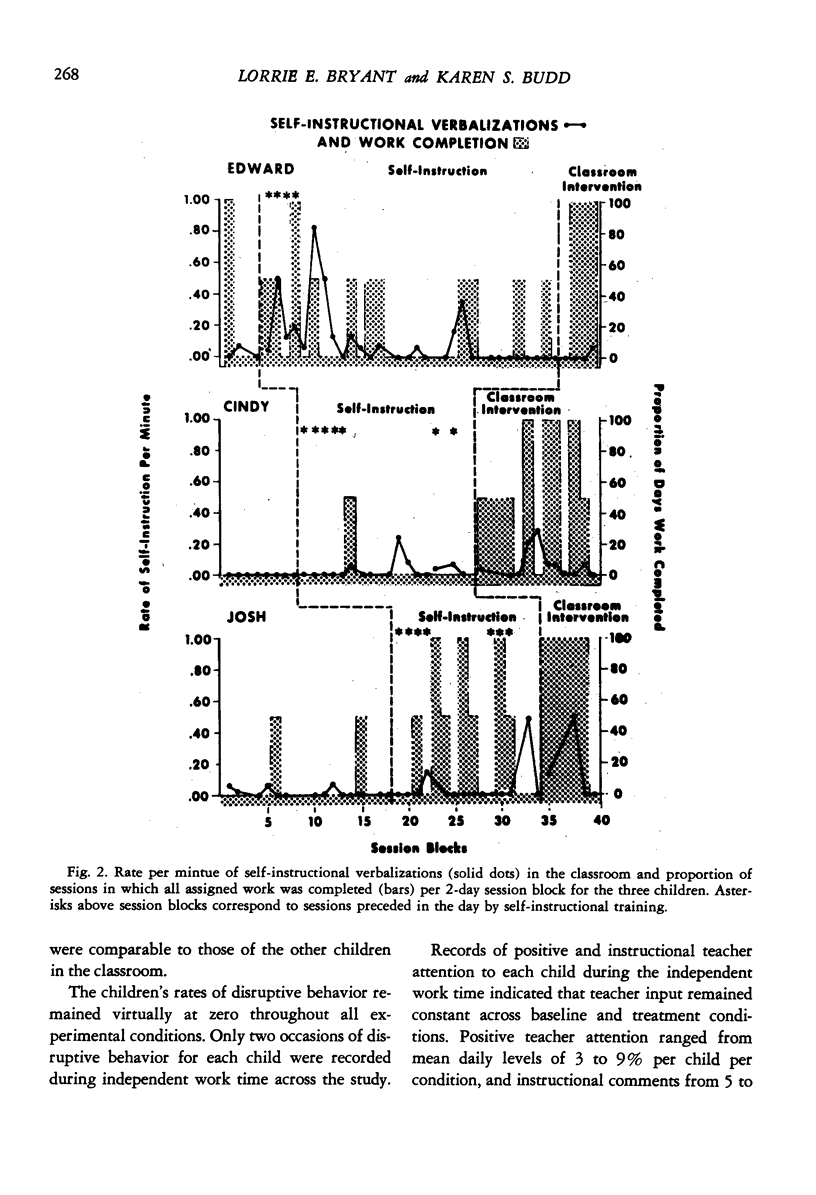



Selected References
These references are in PubMed. This may not be the complete list of references from this article.
- Bornstein P. H., Quevillon R. P. The effects of a self-instructional package on overactive preschool boys. J Appl Behav Anal. 1976 Summer;9(2):179–188. doi: 10.1901/jaba.1976.9-179. [DOI] [PMC free article] [PubMed] [Google Scholar]
- Burgio L. D., Whitman T. L., Johnson M. R. A self-instructional package for increasing attending behavior in educable mentally retarded children. J Appl Behav Anal. 1980 Fall;13(3):443–459. doi: 10.1901/jaba.1980.13-443. [DOI] [PMC free article] [PubMed] [Google Scholar]
- Douglas V. I., Parry P., Marton P., Garson C. Assessment of a cognitive training program for hyperactive children. J Abnorm Child Psychol. 1976;4(4):389–410. doi: 10.1007/BF00922535. [DOI] [PubMed] [Google Scholar]
- Friedling C., O'Leary S. G. Effects of self-instructional training on second- and third-grade hyperactive children: a failure to replicate. J Appl Behav Anal. 1979 Summer;12(2):211–219. doi: 10.1901/jaba.1979.12-211. [DOI] [PMC free article] [PubMed] [Google Scholar]
- Kagan J. Reflection--impulsivity: the generality and dynamics of conceptual tempo. J Abnorm Psychol. 1966 Feb;71(1):17–24. doi: 10.1037/h0022886. [DOI] [PubMed] [Google Scholar]
- Kendall P. C., Finch A. J., Jr A cognitive-behavioral treatment for impulsivity: a group comparison study. J Consult Clin Psychol. 1978 Feb;46(1):110–118. doi: 10.1037//0022-006x.46.1.110. [DOI] [PubMed] [Google Scholar]
- Meichenbaum D. H., Goodman J. Training impulsive children to talk to themselves: a means of developing self-control. J Abnorm Psychol. 1971 Apr;77(2):115–126. doi: 10.1037/h0030773. [DOI] [PubMed] [Google Scholar]
- Meichenbaum D., Goodman J. The developmental control of operant motor responding by verbal operants. J Exp Child Psychol. 1969 Jun;7(3):553–565. doi: 10.1016/0022-0965(69)90016-2. [DOI] [PubMed] [Google Scholar]
- O'Leary S. G., Dubey D. R. Applications of self-control procedures by children: a review. J Appl Behav Anal. 1979 Fall;12(3):449–465. doi: 10.1901/jaba.1979.12-449. [DOI] [PMC free article] [PubMed] [Google Scholar]
- Palkes H., Stewart M., Kahana B. Porteus maze performance of hyperactive boys after training in self-directed verbal commands. Child Dev. 1968 Sep;39(3):817–826. [PubMed] [Google Scholar]


